Alright – so today we’ve got the honor of introducing you to Gillian Harker. We think you’ll enjoy our conversation, we’ve shared it below.
Gillian, looking forward to hearing all of your stories today. Can you open up about a risk you’ve taken – what it was like taking that risk, why you took the risk and how it turned out?
Risk-taking was something I had always assumed was an intrinsic part of my character. I did my first “bungee jump” at about six years old, which involved tying a skipping rope between my brother and me, clambering up on the window ledge of my mum’s house, and leaping off. I smashed my head against our front wall and had a massive, juicy scab on my forehead, which I proudly wore as a medal to commemorate my hare-brained desire for adventure. I did my first skydive at 17 years old, something I’d been desperate to do ever since I found out you could actually pay to be thrown out of an airplane. As I grew up, I didn’t think twice about swimming with sharks, trekking through the African savannah with lions for company, or flying a small aircraft (that was probably more risky for my poor instructor, to be fair!).
You get the picture: if faced with a calculated risk involving a hit of adrenaline surging through my body, I’d be the first to sign up. However, as I got older, I realized I wasn’t always quite the plucky, bold go-getter that I wanted to be. In fact, I soon discovered I was pretty risk-averse in a very significant way: putting myself out there, creatively and psychologically, to potentially be smacked in the face with failure. And as anyone who has ever decided to pursue a creative career knows, this fear of taking a real risk can prove fatal for any artist.
I started my career as an actor, and looking back now, I can see that I inhibited myself at times through my lack of risk-taking. Don’t get me wrong, I hustled and did put myself out there at times. But the real juice comes from squeezing every opportunity, regardless of whether you are left with egg on your face. There were times when I felt too scared to jump, resulting in, more often than not, me playing it too safe. I accepted the no. I wanted to be the people-pleasing, “nice” girl who they might call back.
As a result of this, by 2019, I found my acting career stagnating. I’d lost the spark, danger, and passion that I’d had when I’d started out because I was taking fewer and fewer risks. I needed to do the equivalent of diving headfirst out of a plane and free-falling through the unknown. That risk-taking leap took the form of me writing, directing, producing, starring in, and financing my first short film, Cross.
When I decided to make Cross, all kinds of fears jostled for priority inside my head. What if it’s crap? What if I fail? What if I make a complete fool of myself? Who am I to think I can direct? Don’t film directors have to have a certain kind of quality that I intrinsically lack? How do I even know what to do? On top of all these debilitating musings, I was taking a massive financial risk (relatively speaking) as I was funding this totally by myself. When so many of my friends were doing something sensible like putting deposits down on houses, I was risking a whole wad of my hard-earned cash making a short film. And coming from a working-class background, with no financial safety net to cushion the fall, that felt terrifying.
Despite my crushing fears of failure, I steamrolled ahead through one of the most creatively fulfilling periods of my life. Finding my little team of talented collaborators to join me on my project was the buoyancy I needed in those early days. Seeing my vision and ideas come to actualization with the help of my crew was everything I needed to dispel the idea that I wasn’t the sort of person who could be a film director.
Taking the risk was one of the best decisions I’ve ever made. Cross had a successful festival run, and we picked up some wonderful award nominations as well as a couple of wins. More significantly, it gave me an invaluable sense of confidence in my own abilities, clarity as to what I really wanted to do, and motivation to keep going despite the adversity.
Cross was the start of something really exciting for me: I realized that I was better suited to writing and directing rather than acting, and I feel much, much better crafting the story behind the camera. I’ve gone on to make a number of other short films, picked up more awards and accolades, had the odd pinch-me moment here and there, and am currently writing a TV series. There have definitely been some bumps in the road, and rejection is such a constant in this industry regardless of where you are on the ladder.
Thanks to taking this risk, I no longer have the crippling fear of failure that I once had, and I’m ready to take the next challenge.
Awesome – so before we get into the rest of our questions, can you briefly introduce yourself to our readers.
I’m an intuitive writer, director and actor based in London. I trained in acting at the Academy of Live and Recorded Arts and am a directing alumnus of the Sundance Institute. I’ve been selected by Shiny Network as one of the “best new directing talents worldwide” for my Super 8 film Jinx. My previous shorts have played at BAFTA and BIFA-qualifying film festivals across the UK and internationally, garnering nominations and wins in various festivals. My lockdown short film Feast, co-written with playwright Brian Coyle, was nominated for Best English Short at the British Film Awards.
I love exploring analogue formats and have made a number of short films on Super 8, many of which were created for the Straight 8 competition: you shoot your short on one roll of Super 8, with only in-camera editing allowed and zero post-production. What I love about doing the Straight 8 is that the parameters force you to think visually, economically, and efficiently in terms of script and production. It’s a challenging yet creatively exciting way to make a film.
I’m also a programmer and judge for the BIFA-qualifying Kino London Short Film Festival, which celebrates and supports all levels of filmmaking, offering a platform for films from grassroots to low-budget and fully funded productions. I’m passionate about leveling the playing field for other filmmakers who, like myself, come from lower socio-economic backgrounds. Working with Kino feels like a great way to help nurture and celebrate grassroots creatives based on their artistic merit.
The work I love to create often centres around challenging women who are multi-faceted, complex and nuanced. Some of my characters have been deeply unsympathetic but wounded, and I love exploring the psychology behind certain decisions a person makes. I try to challenge myself by attempting to make the audience empathise with them.
I primarily work in the genres of drama and comedy/drama and am currently developing a scripted-narrative, gallows-humour short film about two female convicts being led to the gallows in the 1700s, as well as another film about grassroots girls’ rugby league. I’m inspired by filmmakers such as Andrea Arnold, Michael Haneke, and Céline Sciamma, but my influences and inspirations are eclectic and often come from unexpected sources.
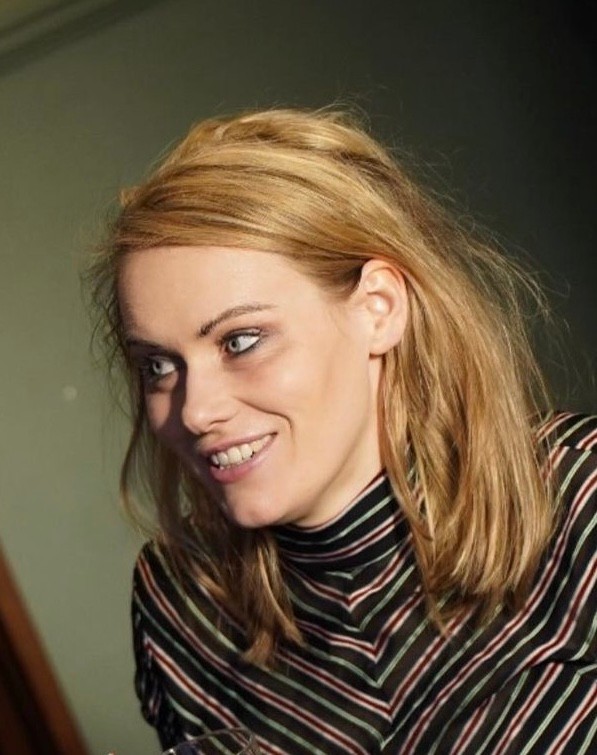
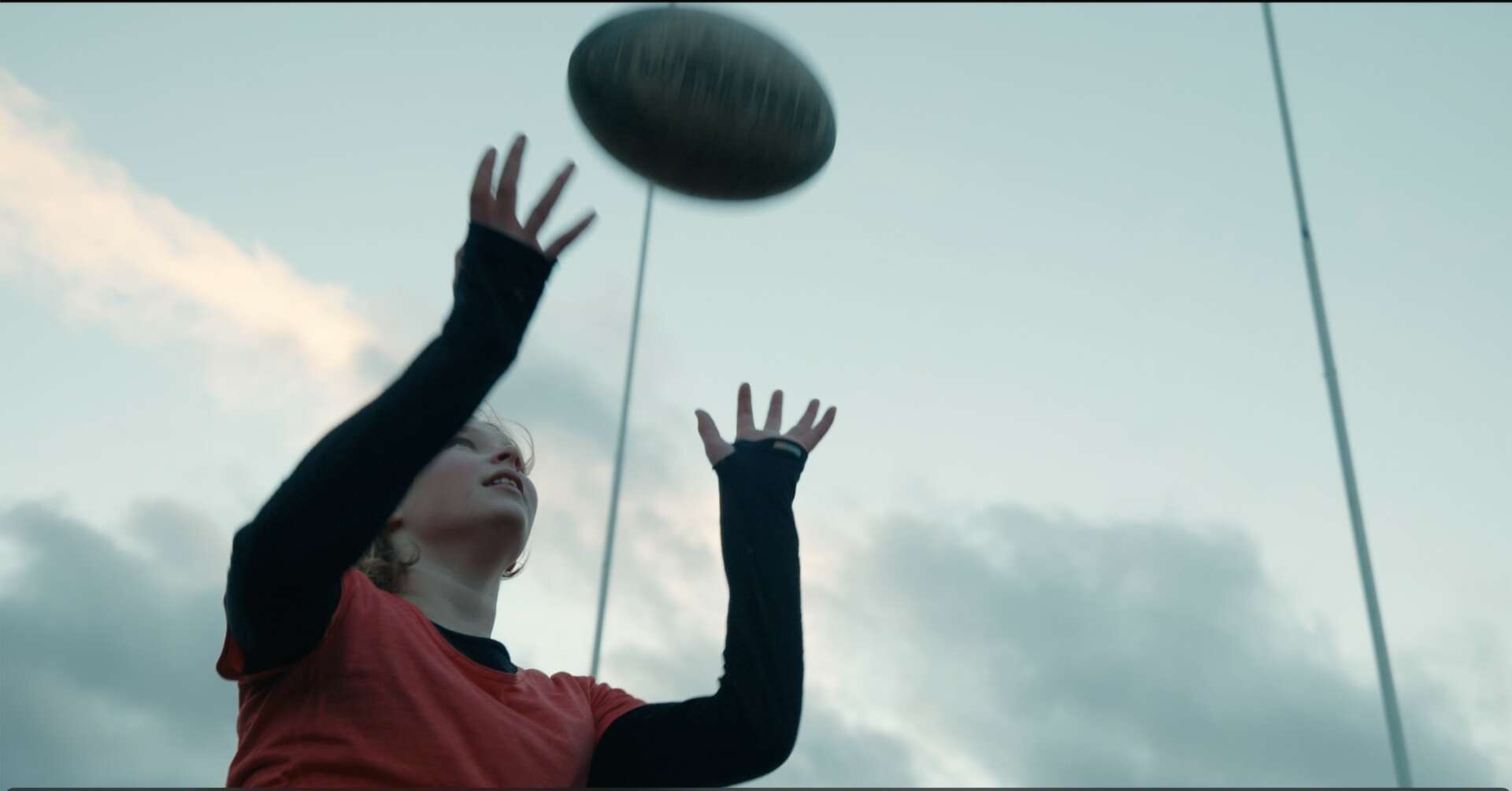
Let’s talk about resilience next – do you have a story you can share with us?
As anyone from a lower socio-economic background knows, entering the film industry is about 400 times harder than for those who have some financial safety net underneath them. Once I got accepted into my drama school course and crunched the numbers, the astronomical fees and living costs were nearly enough to finish anything before it had even started. After lamenting and berating the universe for not bestowing me with trust-fund-baby status, I knew I had no other choice but to pick myself up, shake myself down and put a plan in place to make the money I needed.
In the summer before I started, I picked up a second job in a posh cocktail bar in a village near my hometown of Luton (cue lots of “hide the silverware” jokes), in addition to my full-time job in a publishing house. I worked morning, noon, and night to put everything I earned into my “drama school fund” (minus the tips that were stolen from me by one of my colleagues!).
Once I got to drama school, I had to continue this work ethic. For a few months, I was working from 5 AM until about 8 AM, then getting ready for school, doing a full day from 9 AM to 6 PM, then heading to a job I had in a cinema until around 11 PM. Looking back now, I don’t know how I did it—I even had three part-time jobs at one point! I guess I tend to be a bit of a shire horse at times: keep my head down, keep pushing on, keep focused. I’ll also always be massively grateful to my Grandma, who would transfer me £50 a month for food while I studied.
Balancing multiple demanding tasks that come with full-time training, enduring long hours, and pushing through exhaustion to graduate was something I didn’t appreciate in myself at the time. You always think you could have done more, but I’m so proud of myself for having the resilience and determination to pursue something despite the daunting obstacles. I was the only person in my class to have 100% attendance by the end of the course. I did all of that without missing a day or getting ill.
As any creative knows, you need to have a very resilient core particularly when considering all of the inevitable rejection most artists face daily. True resilience is about recognizing what you could have done differently in a situation and growing to adapt. There are times when things haven’t gone my way, and it’s all too easy to feel personally wronged in some way. But once my pity party is over, I try to reflect on what I can work on for next time.
Like so many creatives I’m inspired by, I have a second job. For a while, I felt weirdly embarrassed about needing a second job, as it felt like some kind of indication that I was failing with my artistic endeavors. I’m a private tutor for school students, covering subjects including English Literature and English Language, math, physics, chemistry, and biology. I love, love, love working with kids and I feel so fulfilled these days. I’ve accepted that having a second job is necessary for most creatives, and I’m so fortunate that I’ve found one that is lucrative, flexible, and complements my creative side so well. I’ve got a fantastic balance at the moment, and that’s come through persevering despite my doubts and insecurities.
Life hasn’t always been plain sailing, though. I suffered a pretty debilitating burnout a couple of years ago. I was incredibly ill, and it took me a long time to acknowledge it, accept it and act upon it. I would beat myself up thinking I was weak and lazy for not doing more, but I’m so incredibly grateful for my friends around me who helped lift me out of that. Resilience isn’t always about taking action. Sometimes you need to know when to put something to the side and focus on being kinder to yourself.
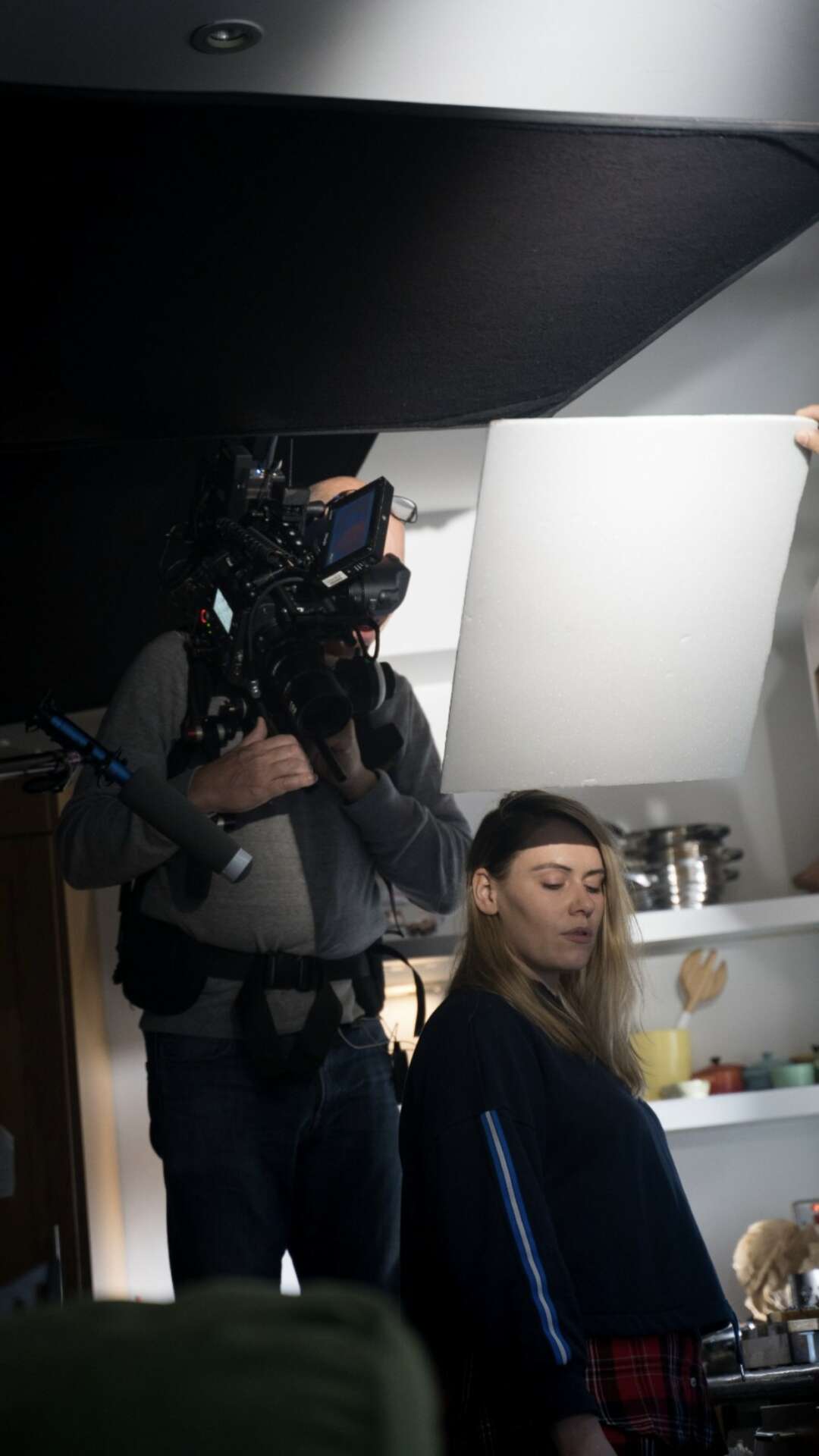
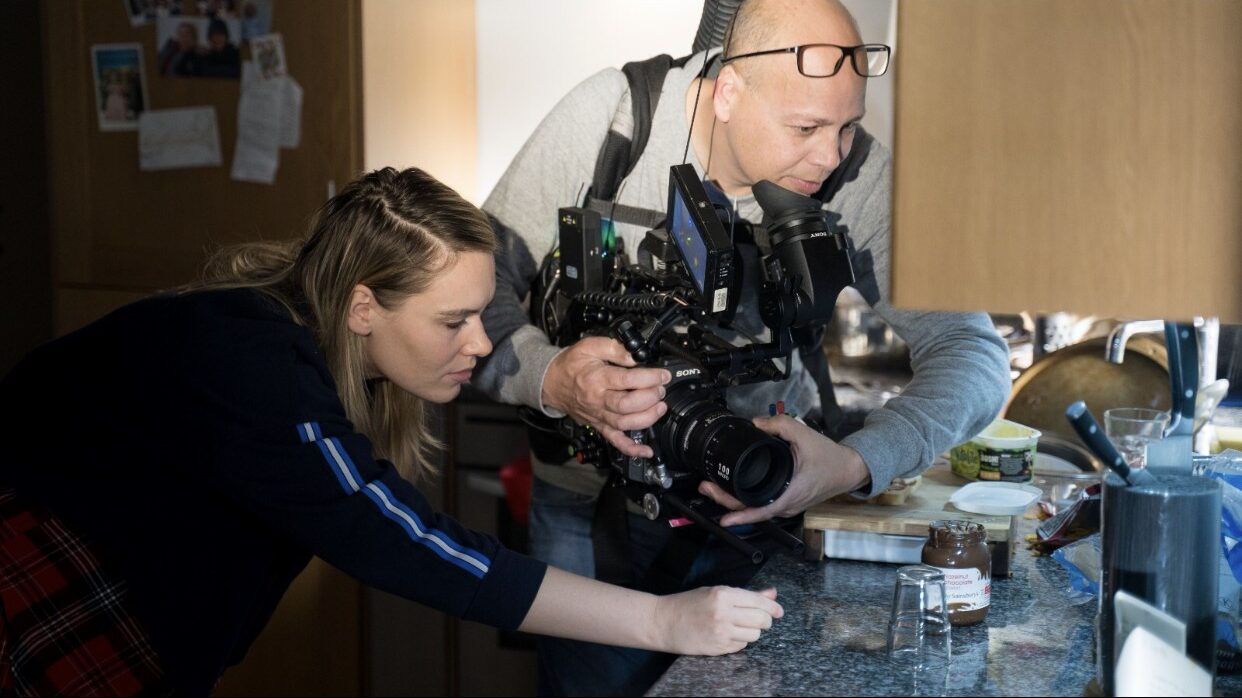
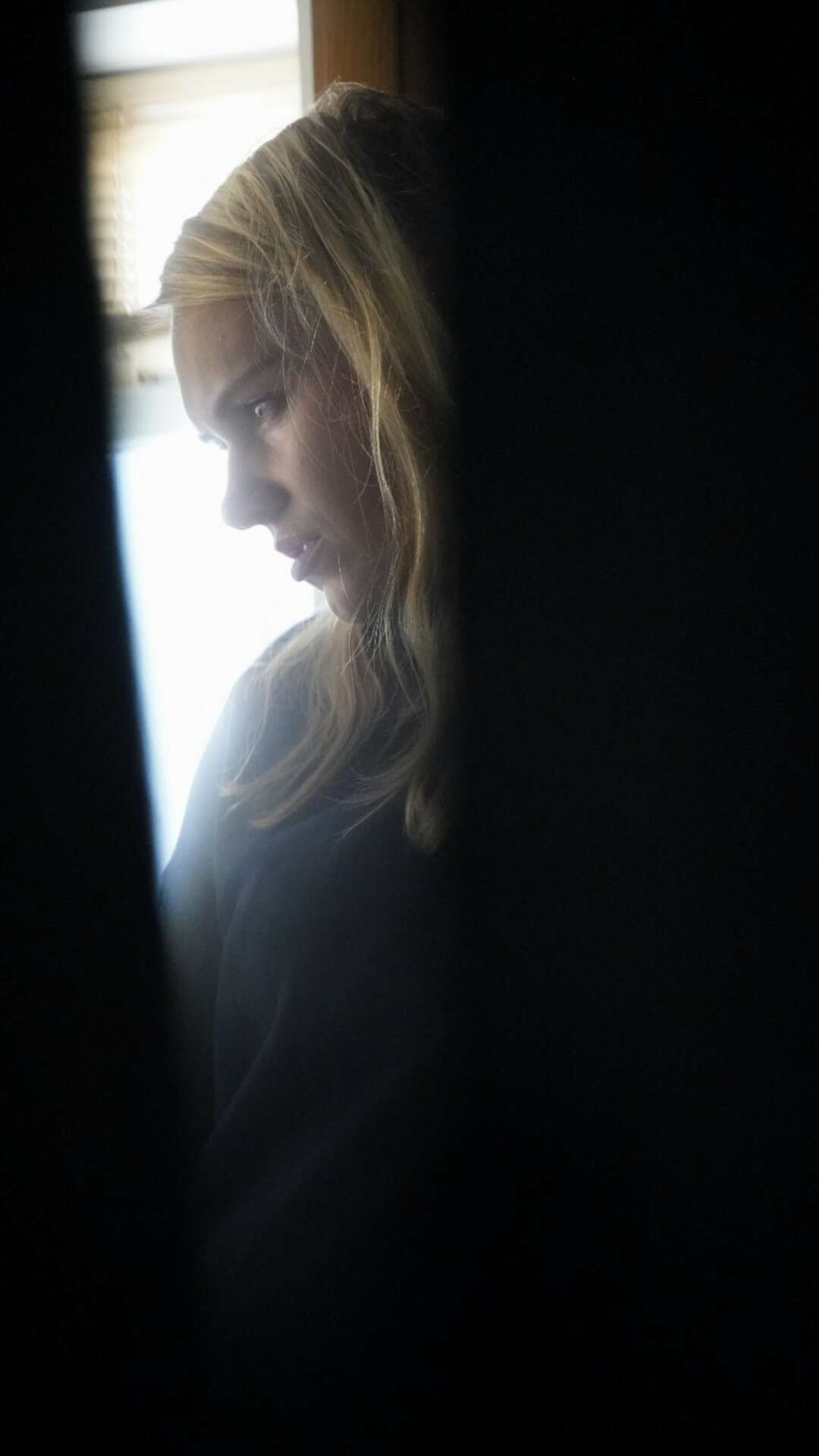
What do you find most rewarding about being a creative?
I feel most people are probably going to say the same thing, but one of the most rewarding aspects of being a creative is seeing your work/project come together. Being in a room with other creatives, batting ideas about and riffing off one another until you find that “Yes” moment is one of my favorite ways to spend a workday. One of the most rewarding things is noticing how my ideas, tastes, and writing have developed over the years through learning from and being mentored by such wonderful, talented people, as well as growing in self-confidence.
Finding the right “project-soulmate” who shares your vision and has a different skill set to complement what you are bringing to the table is also such a satisfying feeling. I’m currently writing a TV series based on an idea I’ve had floating in my head, in various guises, for about four years. I spent a month in Greece last year writing the pilot script and sent it to a friend who ended up coming on board as a co-writer. The script is now in an infinitely better state because of our collaboration, as we both have different strengths. Working with someone else, especially when writing comedy, pushes you to take risks in your work. When I’m writing by myself, I can often talk myself out of an idea, but with my co-writer, we both can intuitively feel if something is right. Having someone there to chew the fat with provides the opportunity to probe deeper into different ideas, explore themes more vigorously, and understand the characters more intimately. It also means I have someone I can voice-note if I’ve overheard something funny on the tube and feel it’s relevant for character X.
Being on set and having something go wrong can be disastrous, but it feels so rewarding when you find a way to overcome that crisis. Often that sense of satisfaction comes after the fact. At the time, you’re too focused on fixing the problem! I was directing a short film a couple of years ago for the Straight 8 competition. Everything had to be shot in order, and we only had one take for each shot. I was using stop-motion animation for a significant part of the film, and my printer decided to break. I won’t bore you with all the details because there was a lot of running about and making adaptations, but I’m so glad my team and I found a solution. Our film ended up getting selected, so all’s well that ends well.
Having people read my scripts or watch my films and enjoy them, or get something valuable from watching them, is something I will never take for granted. I’ve made a couple of films now that seem to resonate with people in really interesting ways, often in ways I hadn’t considered while developing the project. I find it so, so, so difficult to sit and watch my work with an audience—and that’s something I’m trying to work on—but I’ve loved talking to people afterward who have felt something visceral because of my work. I also love having chats with other filmmakers about their work and it does feel very rewarding when you see your work get accepted into a great festival and being programmed alongside films are impressively made.
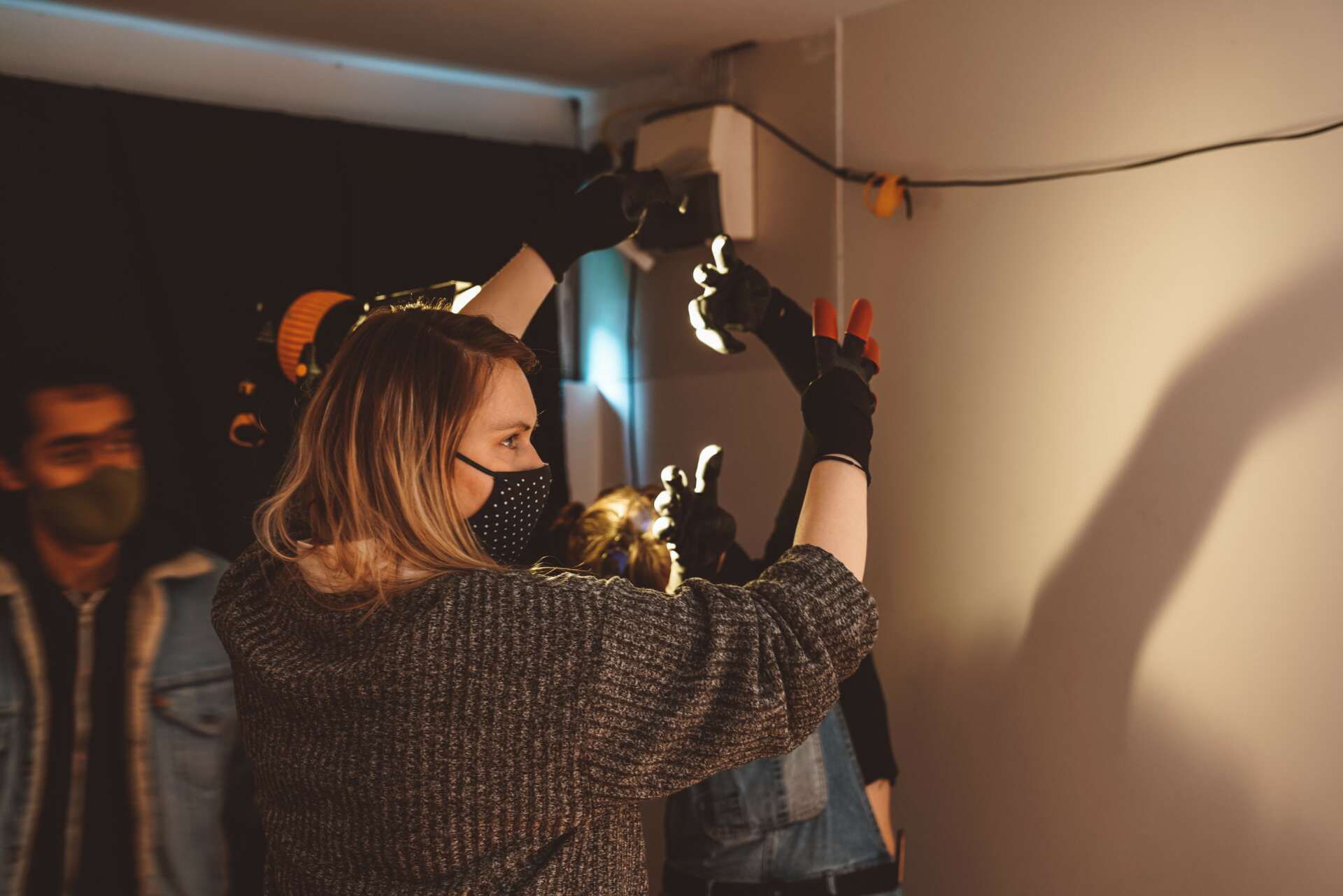
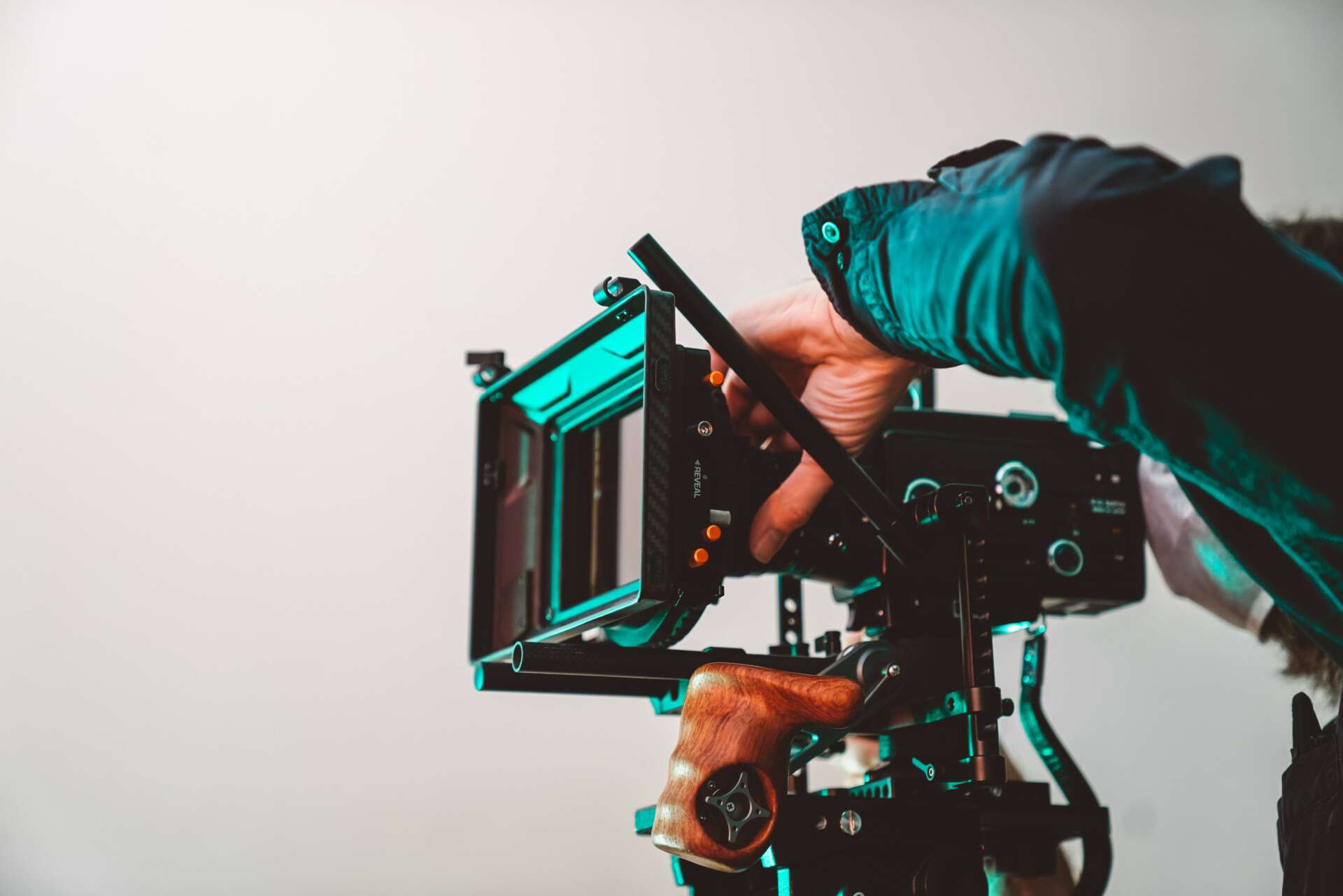
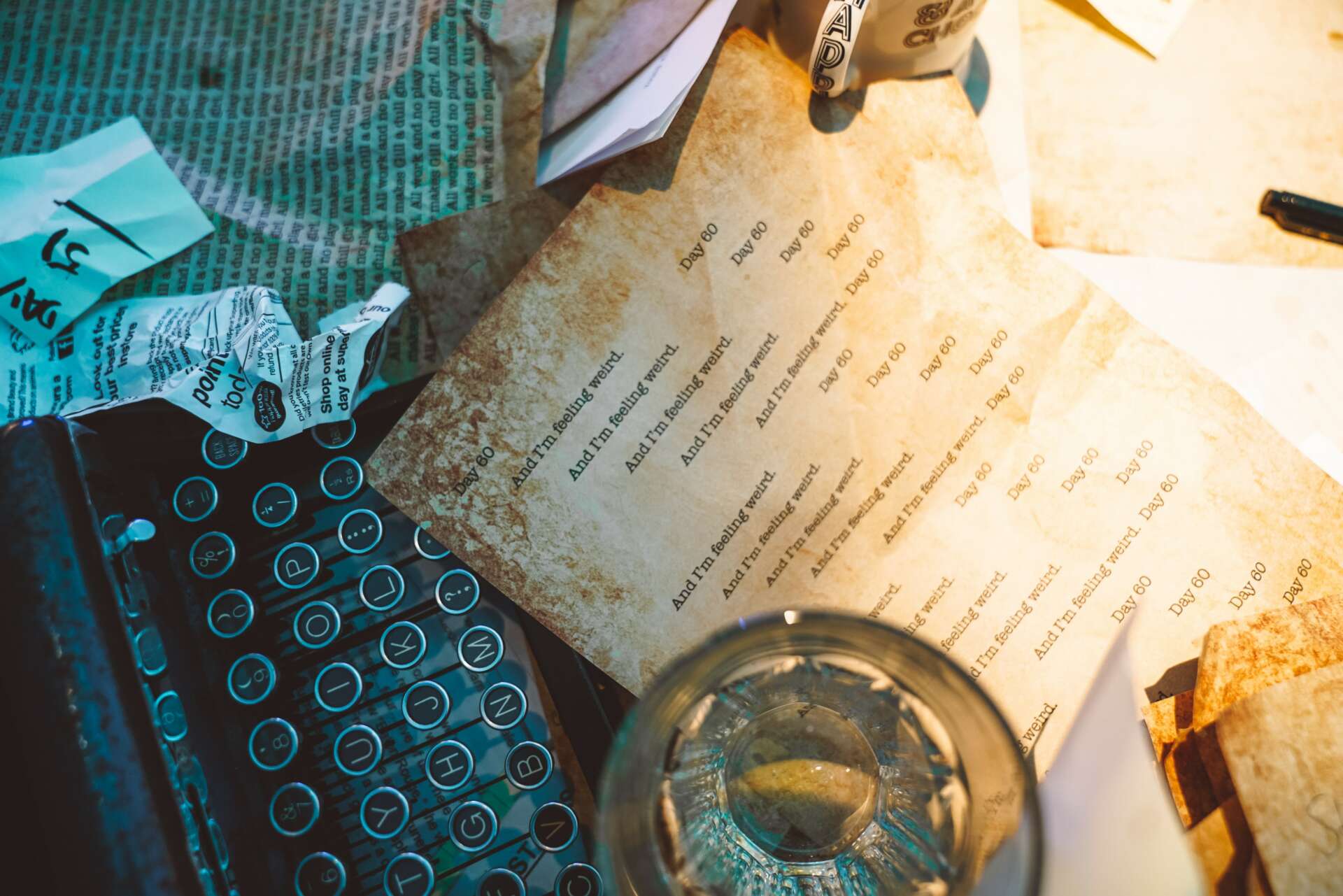
Contact Info:
- Instagram: @gillian.harker
- Twitter: @gillianharker
Image Credits
Helly Bewick Peter Marsden


